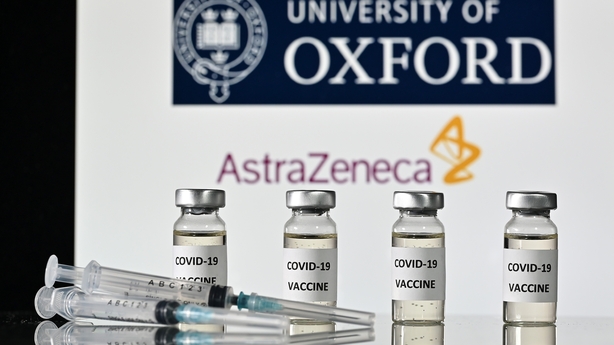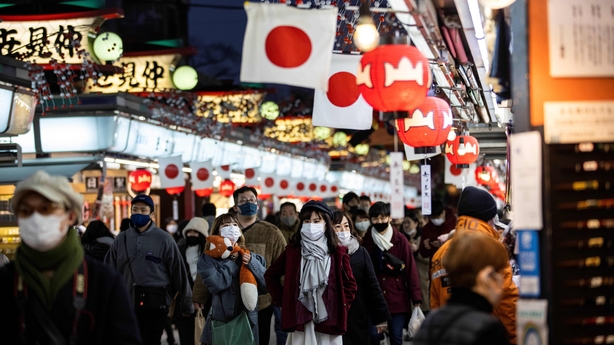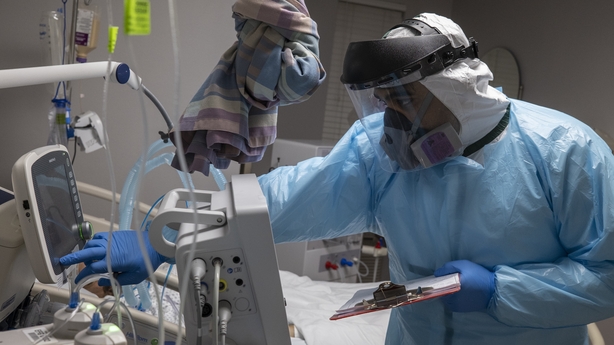Israel said two million people will have received a two-dose Covid-19 vaccination by the end of the month, a pace Prime Minister Benjamin Netanyahu boasts is the world's fastest.
Starting on 19 December, when Mr Netanyahu got his first jab, Israel launched an aggressive push to administer the vaccine made by Pfizer-BioNTech.
Health Ministry Director General Hezi Levy said that because of the enthusiastic takeup, Israel would be easing the speed of vaccination to eke out stocks.
The vaccine must be given in two separate jabs, administered three weeks apart.
"We are slowing the pace of vaccinations of the first dose, so that we can keep reserved stock for a second dose for all those who got a first shot," Mr Levy told public broadcaster KAN.
But he added that around a fifth of Israel's people, starting with health workers and those over 60, would have had both shots by the end of this month.
"By the end of January, we shall have innoculated two million residents, most of them elderly," he said.
As of Friday, one million people had received their first injection.
The health ministry said today that 435,866 people in Israel had so far tested positive for the virus since the first confirmed case was reported in February. Almost 3,400 people have died, it said.
The ministry has also confirmed 18 local cases of a new strain of coronavirus first detected in Britain.
Meanwhile, India has approved emergency use of two Covid-19 vaccines to kick off one of the world's biggest inoculation drives, while the European Union offered to help drug companies expand production to ease distribution bottlenecks.
India, the second-worst affected country, has authorised the use of shots developed by AstraZeneca and Oxford University and by local pharmaceutical firm Bharat Biotech, the country's drug regulator said.
The Serum Institute of India, the world's biggest manufacturer of vaccines, has said it is making between 50 and 60 million doses a month of the AstraZeneca/Oxford vaccine, which is cheaper than the Pfizer-BioNTech jab and easier to store and transport.

India has set an ambitious target of inoculating 300 million of its 1.3 billion people by mid-2021.
Countries around the globe are hoping that the roll-out of vaccines will bring under control a pandemic which has infected 84.6 million people and killed more than 1.8 million since it first emerged in China just over a year ago.
But there is a worldwide shortage of vaccine production capacity, the EU's top health official said offering help to drug firms amid concerns over the speed of vaccinations across Europe.
"The situation will improve step by step," as vaccines roll out, health commissioner Stella Kyriakides told German news agency DPA.
With vaccine production and mass inoculation programmes likely to take months, countries have tightened restrictions to fight a virus resurgence as experts predict a sharp rise in cases after weeks of holiday gatherings.
From local curfews to alcohol bans and complete lockdowns, governments are trying to tackle a surge in infections.
In Bangkok, the city's nightlife shut down following a ban on bars, nightclubs and restaurant alcohol sales, among a raft of restrictions aimed at curbing Thailand's rising virus toll after an outbreak at a seafood market last month.
Public schools in the Thai capital are also set to close for two weeks.
In Tokyo, the city's governor asked the Japanese government to declare a new state of emergency as the country battles a third wave, with 816 new coronavirus cases reported today.
Prime Minister Yoshihide Suga has resisted calls for a second national state of emergency; the government first introduced that measure in April during an earlier wave of the pandemic.

Japan's economy minister told reporters that the government needed to consult with health experts before deciding on a new declaration.
As an interim measure, restaurants and karaoke parlors in the Tokyo area are being asked to close at 8pm, while businesses that serve alcohol should close at 7pm (local time), he said.
Japan's health ministry said there were 3,045 new confirmed cases of the new coronavirus across the country.
Since the start of the pandemic, Japan has reported more than 240,000 cases and 3,548 deaths,according to the health ministry
South Korea has extended its anti-virus curbs until 17 January in the greater Seoul area, including a ban on gatherings of more than four people, which will be widened to cover the whole country.
The soaring number of infections means the race to vaccinate is likely to dominate the coming year.
India has held nationwide drills to prepare for one of the world's biggest inoculation programmes, which is expected to kick off in the coming weeks.
In the United States, the vaccine roll-out has been beset by logistical issues, while the world's worst-hit country has passed 20 million cases and 350,000 deaths.

The US has seen a surge in infections in recent months and yesterday saw its highest number yet recorded in one day, with more than 277,000.
Veteran talk show host Larry King became the country's latest high profile case as he was hospitalised in Los Angeles, US media reported.
In Russia, health minister Mikhail Murashko said more than 800,000 people had received the domestically produced Sputnik V vaccine and that 1.5 million doses had been distributed throughout the country of around 147 million.
The Kremlin has held back on imposing nationwide virus restrictions, instead placing its hopes on the mass vaccination drive to end the pandemic and save its struggling economy.
The French government has lengthened an overnight curfew by two hours in parts of the country to help combat the virus, with the shutdown now starting at 6pm, mainly in the east. Paris has, for now, been spared the additional restriction.

